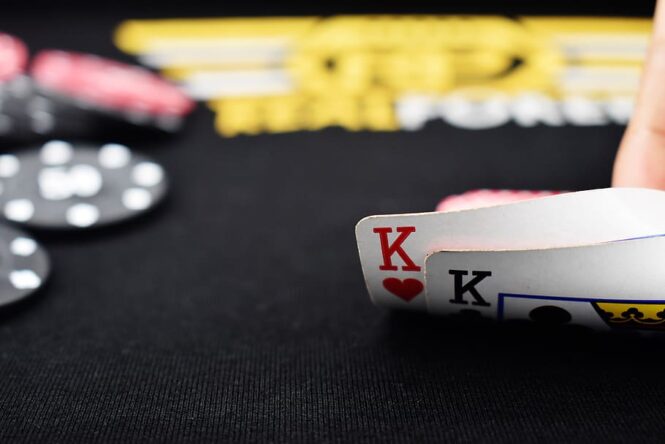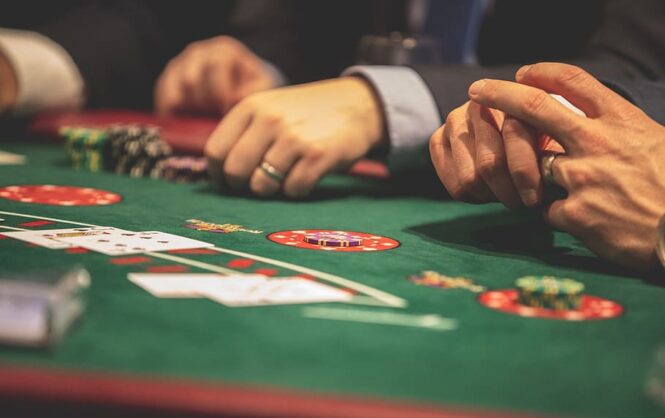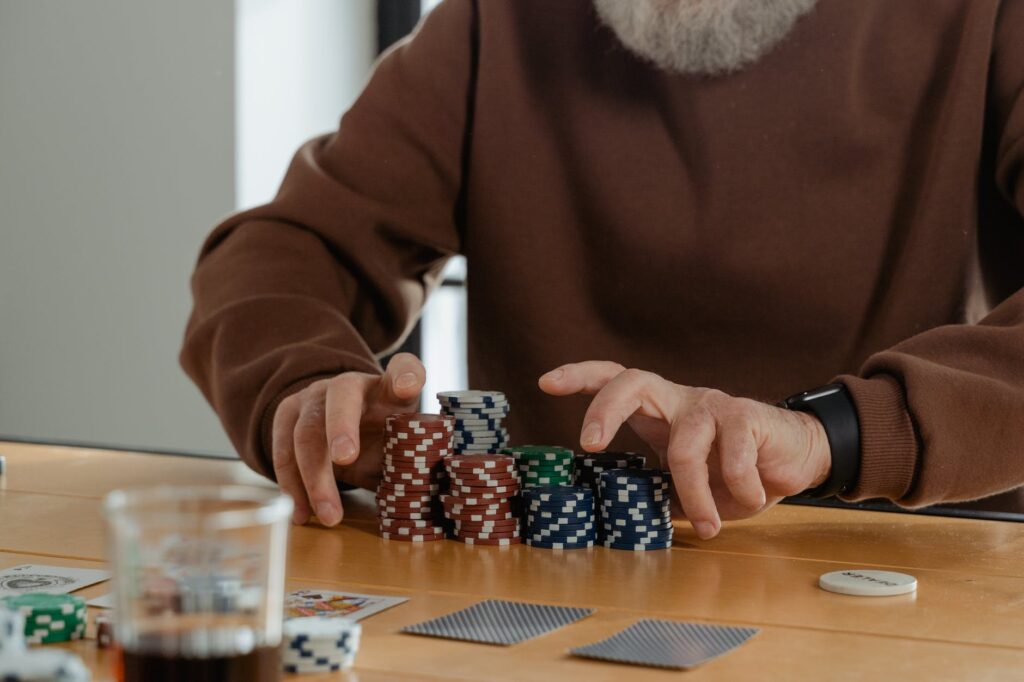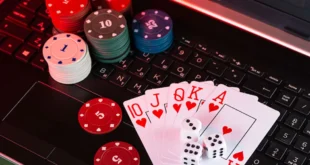While you play against the house for most casino games, poker is the exception that pits you against fellow gamblers. This makes every poker game even more intense as you must rely on your skills to make use of good hands and make the best out of bad ones. The difficulty of poker games depends on who you’re playing against but, if you follow these tips, you’ll be more skilled than the average person.
Our tips should enable you to play better than anybody else off the street. You won’t become a card sharp overnight but you’ll have the fundamental knowledge required to better yourself at poker and other card games that rely on the same plays. These tips can even be applied to online poker facilitated through services like Fanduel.
1. Stop Playing Every Hand

When you’re getting to grips with poker, it may be tempting to play every hand you can to gain valuable experience. Beginners often overplay hands and, by doing so, they’re sabotaging their chances at winning. If you watch players who know what they’re doing, you’ll notice one thing – they fold a lot.
This is because they’re here to win poker, not play poker. They’re not tempted to get in on the action when they have subpar hands, instead, they fold and wait for a better hand to come along. While you can bluff with a bad hand, the pros wait until they get a good one. This means they’ll fold up to 50% of the time, maybe more.
Remember that you don’t have to play every hand and that the more you play, the more you’re likely to lose. Pros typically set a requirement, a minimum hand value that they’ll play while discarding the rest.
2. Stop Bluffing

That brings us to the next misconception that beginners tend to have about poker – bluffing. Bluffing only works under certain contexts, not to give you an ego boost or turn a bad hand into a winning one.
For example, if you’re playing against somebody who always plays the full game and never folds (probably because they follow the last tip and only play good hands) then you can’t bluff them. With more skittish players, it may be possible, but bluffing shouldn’t be part of your regular strategy.
3. Don’t Commit To A Hand

Assuming you’re only picking the best hands, remember that they will become stronger or weaker as the game progresses. If the hand becomes weaker, you shouldn’t feel any loyalty towards the hand you’re playing with. With the way poker games are structured, you’re losing more money the longer you stay in the game. While playing in the best online casinos you will encounter good players and you should play your hand right, don’t overestimate your opponents and keep calm to stay focused during the game increasing your chances of making the right choice.
This means you can minimize your losses by folding halfway through a game. Don’t fall for the sunk cost fallacy, where you think you should continue because you’ve already contributed X to the pot. If you think you won’t win with the hand you’ve got then fold, it’s that simple.
4. Watch The Table Cards

Having mentioned the way that a poker hand changes throughout the game, let’s talk more about table cards. Once you’ve grasped the basics, you should turn your attention to the table and the cards that are placed on it. The significance of these cards is different depending on the type of poker.
For example, Texas Hold ‘Em is all about combining your two hand cards with up to three table cards. Three are placed shortly after the start of the game (the flop) and then the fourth and fifth are added in subsequent rounds. Use these to strategize so you can make powerful hands or admit when you’ve been beaten.
In other types of poker, the table cards and players’ folded cards can help you determine what the other players have, which helps inform your calls.
5. Take It Seriously

You should take poker a little more seriously when you’re playing to win. You can still have fun while playing poker this way, especially if your idea of fun is taking money from other people.
At night at the casino, even an online one in the comfort of your own home, can come with distractions. If you’re prone to drinking while playing casino games, you should consider stopping so you can keep your head in the game. If you’re the least inebriated player at the table, you’re at a bigger advantage. There’s a reason that many casinos offer drinks for cheap, if not free because drunk gamblers are easily parted with their money.
Similarly, you should keep your head during poker games. If you’re in a bad mood, you should generally avoid playing poker and other casino games since you’ll be easier to tilt. During periods of anger or sadness in your life, don’t seek out poker as an escape. Not only is that a sign of addictive behavior, but it’s also an expensive way of not dealing with your problems.
6. Manage Your Bankroll

As part of taking your poker playing seriously, you should manage your bankroll. A bankroll is a separate cache of money that you keep specifically for gambling purposes, as an investment account that you need to grow by making the right calls. By keeping it separate from your other accounts, you won’t be tempted to spend your last paycheck on gambling. Instead, you take your bankroll with you and stop if you blow it all.
Even better, avoid blowing your bankroll in one night by setting limits. If you lose a percentage of your bankroll without making it back, for example, then stop playing for the night. This minimizes losses and saves your bankroll to fight another day.
You should also choose your stakes based on your bankroll. Don’t play high-stakes games if you can’t afford them. It’s better to perform consistently at lower stakes than win sporadically at higher stakes until you get caught out and lose a lot of money. Remember that winning at lower stakes isn’t necessarily a sign you should move to higher stakes.
Practice Patience
In the high-stakes world of poker, patience isn’t just a virtue—it’s a strategic necessity. Consider the regrettable outcomes of many novice players who dive headfirst into games, playing too many hands and making hasty decisions. The adage “slow and steady wins the race” aptly applies here. Seasoned poker champions who play at top no deposit bonus casinos often extol the virtues of waiting—biding their time for that unbeatable hand or the perfect moment to bluff. For instance, poker legend Phil Ivey often attributes his success to patience, emphasizing the importance of waiting for the right opportunities rather than chasing every pot.
Study the Game
As with any craft, mastery in poker requires both practice and knowledge. Diving into a treasure trove of resources—from classic books like Doyle Brunson’s “Super System” to the latest online tutorials—can provide invaluable insights. Observing the play of professionals, like Daniel Negreanu or Vanessa Selbst, can offer practical lessons on strategy, bluffing, and reading opponents. Furthermore, branching out to understand different poker variants—from Texas Hold’em to Omaha—can equip you with versatile strategies, giving you an edge in various game settings. As Negreanu once said, “Poker is a skill game pretending to be a chance game.” Thus, continuous learning and adaptation are crucial for consistent success.
 Imagup General Magazine 2024
Imagup General Magazine 2024



